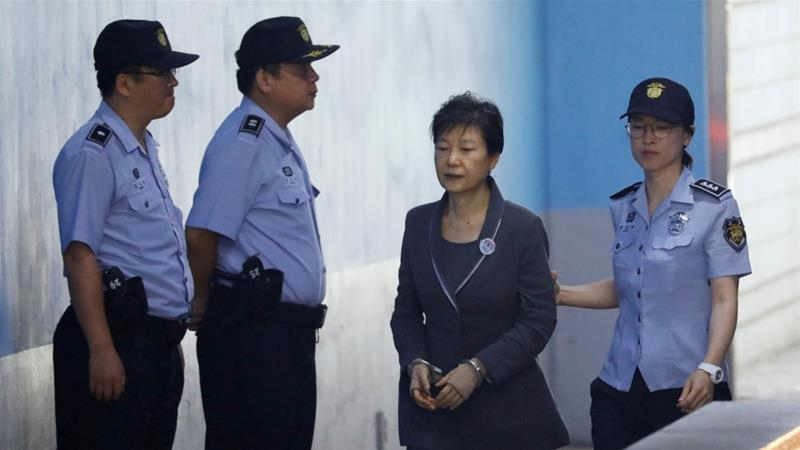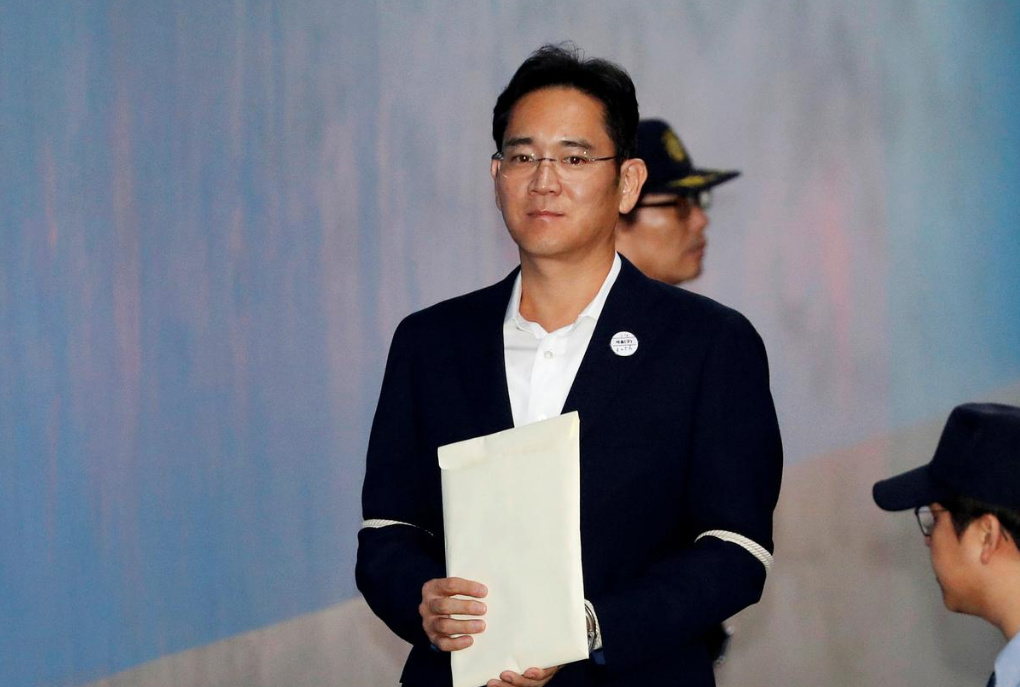

Ousted South Korean president Park Geun Hye was brought to a court shortly after her arrest in Seoul, May 2017. /Reuters Photo
South Korea's Supreme Court on Thursday overturned part of a ruling that sent former president Park Geun-hye to prison on corruption charges, citing procedural problems.
The court sent the case back to the appellate Seoul High Court, which had sentenced Park to 25 years in prison in 2017 over an influence-peddling scandal involving her longtime friend Choi Soon-sil. Park was convicted of 16 corruption counts that include bribery, abuse of power, and coercion.
South Korean media warned that Thursday's ruling might not work out in her favour, as if she is convicted again in two separate verdicts she could face a longer total sentence in total.
In April 2018, Park was sentenced to 24 years in prison and a fine of 18 billion won (17 million U.S. dollars). And in August of the same year, the second verdict in Park's case sentenced her to 25 years in prison and a 20-billion-won (18 million U.S. dollars) fine.
The most sticking point of the case is the involvement of Samsung Group’s de facto chief Jay Y. Lee., who received a five-year jail term in 2017 on charges including bribery and embezzlement, but was released five months later after the appeal court halved his sentence and suspended it for four years.
Since the top court has sent back the case, and asked the appeals court to reconsider its judgment, it means the final result could lead to the conviction being overturned or to a tougher sentence. A sentence any longer than three years would mean immediate incarceration as a suspension is only permitted for terms of up to three years.
The final ruling will determine how much Lee, 51, can focus on steering the group's flagship Samsung Electronics Co Ltd through falling profitability and Japanese export curbs on materials crucial for the world's leading chip maker.
How is Samsung involved?

In late 2016, prosecutors arrested Park's close friend Choi Soon-sil on suspicion of exerting inappropriate influence over state affairs after Park allowed Choi to edit draft speeches.
Court documents showed Park pressed conglomerates including Samsung Group to make donations to Choi-backed sports foundations and separately asked Samsung to support the equestrian training of Choi’s daughter.
Park was impeached in March 2017, making her the country's first democratically elected leader to be ousted from office. At her trial, she denied wrongdoing.
Samsung heir Lee was arrested a month earlier, accused of seeking presidential favors in exchange for extending Choi financial support. Samsung and Lee both denied wrongdoing.
The case centers on whether three horses donated by Samsung for the training of Choi's daughter should be considered bribes aimed at winning Park's favor.
Court documents showed Park asked Lee to help the daughter, and it was convicted on grounds that the horses were bribes worth 3.7 billion won (3.04 million U.S. dollars). However, the horses were not recognized as such in Lee's trial, helping reduce his sentence.
Under local law, the court can only hand down a sentence suspension when the embezzlement amount is below five billion won. In Lee's case, the horses and sports foundation donation are estimated at 3.7 billion won and 1.6 billion won, respectively.
The court may also rule on whether there were any quid-pro-quo dealings between Park and Lee. Ruling in the affirmative could increase the severity of their punishment.
(With input from Reuters)

Copyright © 2018 CGTN. Beijing ICP prepared NO.16065310-3
Copyright © 2018 CGTN. Beijing ICP prepared NO.16065310-3